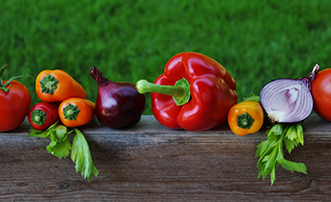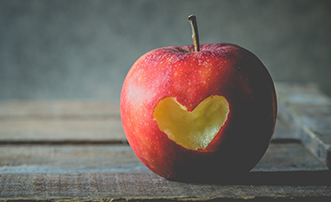Every year, we celebrate Older Americans Month in May! Older Americans month dates back to 1963 when President John F. Kennedy designated May as Senior Citizens Month. It was later renamed Older Americans Month, which honors older Americans and celebrates their contributions to our communities and our nation.
The theme is set by the Administration for Community Living (ACL). This year’s theme is “Aging Unbound, which offers an opportunity to explore diverse aging experiences and discuss how communities can combat stereotypes…promoting flexible thinking about aging – and how we all benefit when older adults remain engaged, independent, and included.” (acl.gov)
Here are some nutrition tips to help you remain independent and continue to be an active part of our community:
1. Protein: Retain your muscle mass. As we age, our bodies need about 50% more protein than when we were younger. We need this extra protein to help maintain muscle mass to decrease risk of falls and broken bones. It allows us to continue to do everyday things such as go for walks, grocery shopping, and be with friends and family.
• Some foods to add to your diet that are high in protein are meat, poultry, fish, eggs, beans and lentils, dairy (such as Greek yogurt, milk, and cheese), and whole grains.
• Anyone over age 65 should strive for 0.45 to 0.55 grams of protein per pound of body weight daily, or about 68 to 83 grams for a 150-pound person.
2. Vitamin D: Maintain strong bones. After age 50, our bodies tend not to synthesize vitamin D from the sun as well as when we were younger. There are a few food sources of vitamin D, such as fatty fish like salmon, tuna, and sardines, eggs, fortified milk, orange juice, and yogurt.
• Our bones and muscles work together. With strong bones and strong muscles, we are less likely to fall.
• Typically, we get about 400 IU in per day. It is recommended that we get 800 IU. With a simple blood test, your doctor can tell if you are low in vitamin D. If so, your doctor may recommend a supplement.
3. Vitamin B12: Stay mentally sharp. As we age, it is more difficult to absorb vitamin B12 from our diet, so we need increased amounts of it. Luckily, if you’ve lived a healthy lifestyle with plenty of vitamin B12, your body is able to store about 5 – 7 years worth to utilize. Vitamin B12 deficiency may cause brain fogginess, confusion, and memory loss. With the correct amount of B12 in the diet, there have been studies that show increased cognition. Unfortunately, this isn’t the case for those who have been diagnosed with any type of dementia.
• Some foods that are high in vitamin B12 are salmon, tuna, beef, milk, and yogurt.
• Again, there are limited food sources with vitamin B12, so your doctor may recommend a vitamin B12 supplement.
Overall, with plenty of protein and the correct levels of vitamin D and B12, we can be on our way to healthy aging in the present and for the future.
Sources:
acl.org, consumerreports.org, uta.edu




